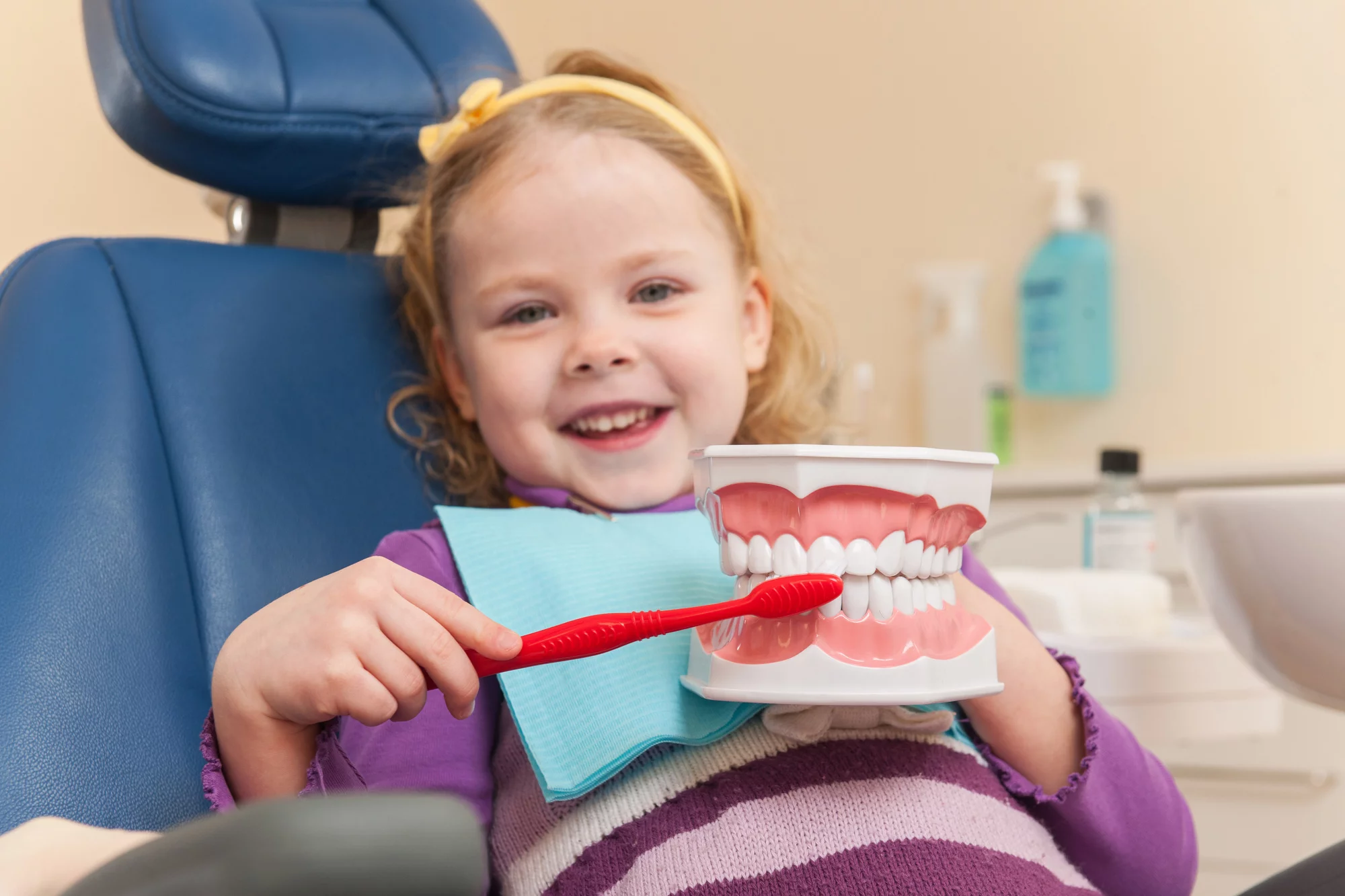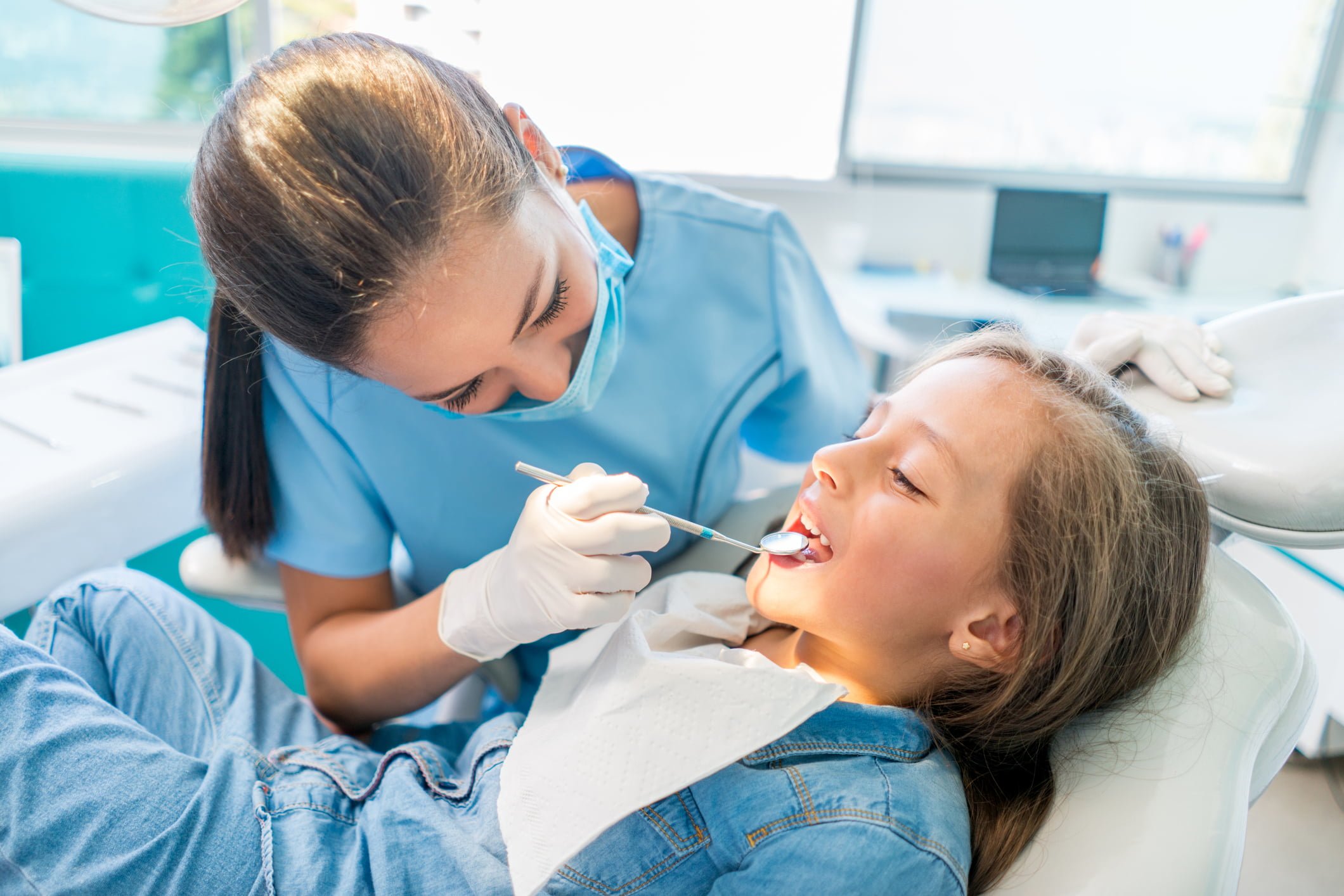A Comprehensive Overview to Pediatric Dental Care and Its Duty in Preventing Usual Oral Problems
Understanding pediatric oral treatment is necessary for developing a foundation of long-lasting oral wellness in youngsters. Early oral brows through, proper oral health practices, and nutritional awareness are crucial components that can considerably minimize the risk of usual oral problems such as tooth cavities and malocclusion. By furnishing both caretakers and kids with the essential knowledge and abilities, we can foster healthy habits that promote anxiety-free dental experiences. Yet, the inquiry remains: just how can these techniques be properly carried out to make certain long lasting results?
Significance of Early Oral Gos To
Identifying the value of early dental check outs can establish the structure for a child's lifelong oral health and wellness. Developing a connection with a pediatric dental professional as early as the eruption of the initial tooth, commonly around 6 months old, is necessary. These first visits not just acquaint children with the dental environment yet additionally permit for very early detection of prospective problems, such as misalignment or cavities.
Early oral examinations equip caretakers with beneficial knowledge regarding appropriate dental care, dietary referrals, and the prevention of oral diseases. Pediatric dental practitioners are experienced in addressing the distinct requirements of children, ensuring that they receive age-appropriate education on dental hygiene. Furthermore, these visits provide an opportunity to go over behaviors such as thumb-sucking and pacifier usage, which can affect dental advancement.
Necessary Oral Health Practices
Developing a strong foundation for a youngster's oral health surpasses routine dental visits; it also entails instilling effective dental health methods from an early age. Caregivers and parents play an important function in training youngsters appropriate methods to preserve their dental health.

Flossing should start when two teeth touch, as this protects against plaque accumulation in hard-to-reach locations. Moms and dads ought to help their children with brushing and flossing up until they are about 7 or 8 years old to ensure thoroughness.
Additionally, developing normal oral examinations every 6 months allows for expert surveillance of dental health. Showing youngsters the value of dental health and making it a fun, interesting task can promote lifelong healthy routines that are crucial in stopping common dental problems.

Duty of Nutrition in Dental Wellness
Nourishment plays a pivotal role in maintaining optimal dental wellness, as the foods kids take in can considerably impact the growth and toughness of their teeth. A well-balanced diet regimen abundant in crucial minerals and vitamins is critical for building strong enamel and supporting general dental health and wellness (kid dentist near me). Key nutrients, such as vitamin, phosphorus, and calcium D, are essential for the formation of healthy and balanced teeth and bones. Foods like milk products, leafy environment-friendlies, and fortified grains can enhance calcium and phosphorus levels, while direct exposure to sunshine or dietary sources of vitamin D can boost calcium absorption.
On the other hand, a diet high in acids and sugars can lead to detrimental effects on dental wellness. Sugary snacks and beverages can promote the growth of dangerous bacteria in the mouth, leading to boosted acidity and a greater go right here danger of dental cavity. It is necessary for caregivers to urge much healthier treat choices, such as fruits, vegetables, and entire grains, which not only give essential nutrients yet additionally promote saliva production, further securing teeth.
Typical Dental Issues in Children
Dental health and wellness problems are a typical worry for several parents, as children can experience a variety of troubles that may influence their dental wellness. One widespread problem is dental caries, or tooth cavities, which emerge from the demineralization of tooth enamel due to acid-producing microorganisms. This condition is commonly aggravated by inadequate nutritional routines, such as regular intake of sweet treats and drinks.
An additional common issue is malocclusion, where teeth are misaligned, resulting in troubles in biting, eating, and talking. This can result from genetic aspects or practices such as thumb sucking and prolonged pacifier use. In addition, gingivitis, a very early form of periodontal condition, can happen in children, often because of inadequate dental hygiene practices. It is characterized by red, swollen gum tissues that might hemorrhage during brushing.
Tooth injuries, consisting of fractures or avulsions, are also regular amongst energetic children. Normal dental examinations play a vital duty in identifying and attending to these typical dental problems properly.
Building Lifelong Dental Habits
Instilling great dental health techniques early in life sets the structure for a lifetime of healthy teeth and gums. Establishing a regular routine for cleaning and flossing is essential; kids ought to comb their teeth two times a day with fluoride toothpaste and begin flossing as quickly as 2 adjacent teeth touch. Moms and dads play a crucial duty in modeling these actions, as kids usually imitate grown-up methods.
Educating kids concerning the importance of dental care can further reinforce these behaviors. Usage interesting techniques, such as tales or interactive video games, to aid them comprehend why routine dental brows through and correct hygiene are essential. In addition, presenting a balanced diet plan low in sugar can considerably decrease the danger of tooth cavities and promote dental health and wellness.
Routine dental exams, commonly advised every 6 months, give a possibility for professional support and early discovery of possible concerns. These check outs can additionally assist youngsters develop a favorable association with oral care. By promoting these practices and attitudes from a young age, parents can encourage their children dental problems to take obligation for their oral health and wellness, eventually resulting in a lifetime of positive smiles and decreased dental problems.
Verdict

Early oral gos to, appropriate dental hygiene practices, and nutritional understanding are important parts that can substantially alleviate the danger of usual dental issues such as browse around this site cavities and malocclusion.Very early oral exams empower caretakers with beneficial knowledge relating to correct dental care, nutritional referrals, and the avoidance of dental conditions. Routine oral check-ups play a crucial function in discovering and addressing these typical oral issues efficiently.
Early oral brows through, along with the implementation of effective dental health methods and appropriate nutrition, significantly contribute to the prevention of typical oral issues such as tooth cavities and gingivitis. By instilling positive dental behaviors from a very early age, children are much more most likely to experience healthy and balanced teeth and gums throughout their lives, ultimately cultivating a culture of dental health that can be maintained right into the adult years.